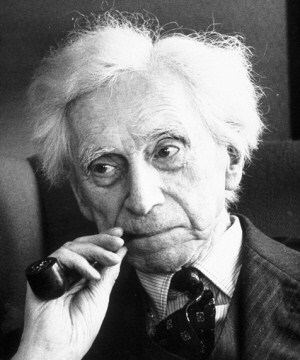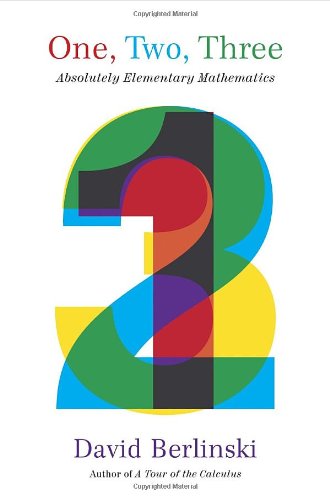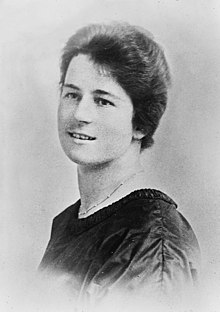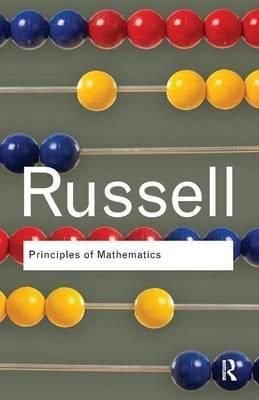Anellis, Irving. Review of Bertrand Russell, Towards the Principles of Mathematics, , edited by Gregory H. Moore, and Bertrand Russell, Foundations of Logic, edited by Alasdair Urquhart with the assistance of Albert C. just wanted to thank those who have gone oout of their way to provide these works. Read the synopsis and I have great expectations so hopefully I can write more of a review withthe next comment. item 8 The Principles of Mathematics by Bertrand Russell (English) Hardcover Book Free The Principles of Mathematics by Bertrand Russell (English) Hardcover Book Free. Best Selling in Textbooks, Education. Page 3 Mathematics is the class of all propositions of the form p implies q where p and q are propositions containing one or more variables, the same in the two propositions, and neither p nor q contains any constants except logical constants. Buy The Principles of Mathematics 2nd ed. by Bertrand Russell (ISBN: ) from Amazon's Book Store. Everyday low prices and free delivery on eligible orders. First published in 1903, Principles of Mathematics was Bertrand Russells first major work in print. It was this title which saw him begin his ascent towards eminence. In this groundbreaking and important work, Bertrand Russell argues that mathematics and logic are, in fact, identical and what is commonly called mathematics is simply later deductions from logical premises. Bertrand Arthur William Russell ( ) was a British philosopher, logician, essayist and social critic best known for his work in mathematical logic and analytic philosophy. First published in 1903, Principles of Mathematics was Bertrand Russells first major work in print. It was this title which saw him begin his ascent towards eminence. In this groundbreaking and important work, Bertrand Russell argues that mathematics and logic are, in fact, identical and what is commonly called mathematics is simply later deductions from logical premises. The Principles of Mathematics: Vol. 1 is a terrific introduction to the fundamental concepts of mathematics. Although the book's title involves mathematics, it is not a textbook packed with equations and theorems. Instead philosopher Bertrand Russell uses mathematics to explore the structure of. Bertrand Russell: Bertrand Russell, British philosopher and logician, founding figure in the analytic movement in AngloAmerican philosophy, and recipient of the 1950 Nobel Prize for Literature. His contributions to logic, epistemology, and the philosophy of mathematics made him one of the foremost philosophers of the 20th century. Definition of Pure Mathematics The general doctrine that all mathematics is deduction by logical principles from logical principles was strongly advocated by Leibniz, who urged constantly that axioms ought to be proved and that all except a. Bertrand Russell's greatest pieces of philosophical writing could probably be said to be The Principles of Mathematics, On Denoting and with Alfred North Whitehead Principia Mathematica, there is however one sense in which it could be said that the russellian magnum opus is The Principles of Mathematics, from here on TPM. The Principles of Mathematics, by Bertrand Russell, was first published in 1903. This online edition is based on the public domain text as it appears in the 1996 Norton paperback reprint of the 1938 Second Edition (ISBN ). Bertrand Russell's greatest pieces of philosophical writing could probably be said to be The Principles of Mathematics, On Denoting and with Alfred North Whitehead Principia Mathematica. There is however one sense in which it could be said that the russellian magnum opus is The Principles of Mathematics, from here on TPM. In 1959 Russell wrote My Philosophical Development, in which he recalled the impetus to write the Principles, It was at the International Congress of Philosophy in Paris in the year 1900 that I became aware of the importance of logical reform for the philosophy of mathematics. Principles of Mathematics (Routledge Classics) and over one million other books are available for Amazon Kindle. Learn more First published in 1903, Principles of Mathematics was Bertrand Russell's first major work in print. It was this title which saw him begin his ascent towards eminence. In this groundbreaking and important work, Bertrand Russell argues that mathematics and logic are, in fact, identical and what is commonly called mathematics is simply later. The material on the subject originally intended to form the 2d volume was later developed into an independent work: Principia mathematica, by A. Whitehead and Bertrand Russell, published in 3 vols. Bertrand Russell ( ) was born in England and educated at Trinity College, Cambridge. His long career established him as one of the most influential philosophers, mathematicians, and social reformers of the twentieth century. Bertrand Russell published a large number of books on logic, the theory of knowledge, and many other topics. He is one of the most important logicians of the 20 th Century. Russell's Mathematical Contributions. Over a long and varied career, Bertrand Russell made groundbreaking contributions to the foundations of mathematics and to the development of contemporary formal logic, as well as to. Bertrand Russell: The Principles of Mathematics (1903) Free online edition (Version 0. 12: 28 May 2017) This is one of the foundational works of 20th Century Analytic Philosophy, and an important contribution to logic, metaphysics, and the philosophy of mathematics. Published in 1903, this book was the first comprehensive treatise on the logical foundations of mathematics written in English. It sets forth, as far as possible without mathematical and. The Principles of Mathematics is a book written by Bertrand Russell in 1903. In it he presented his famous paradox and argued his thesis that mathematics and logic are identical. The book presents a view of the foundations of mathematics and has become a classic reference. Principles of Mathematics Edition 2 First published in 1903, Principles of Mathematics was Bertrand Russell's first major work in print. It was this title which saw him begin his ascent towards eminence. Page 106 are: Implication, the relation of a term to a class of which it is a member, the notion of such that, the notion of relation, and such further notions as are involved in formal implication, which we found ( 93) to be the following: propositional function, class, denoting, and any or every term. The Principles of Mathematics (1903) By Bertrand Russell. Contents Preface Introduction to the Second Edition. Part I The Indefinables of Mathematics. Chapter 1 Definition of Pure Mathematics Chapter 2 Symbolic Logic Bertrand Russell, The Principles of Mathematics, vol. After reading The Principles of Mathematics (1903) by Bertrand Russell and The Foundations of Arithmetic (1884) by Gottlob Frege, he developed an obsessive interest in the philosophy of logic and mathematics. In 1911 Wittgenstein went to Trinity College, University of Cambridge, in order to make Russells acquaintance. The Principles of Mathematics (Les Principes des Mathmatiques) est un livre crit par Bertrand Russell en 1903. Il y a prsent son clbre paradoxe et y a soutenu la thse que les mathmatiques et la logique sont identiques [ 1. The Principles of Mathematics is a very captivating glimpse into the logic and rational of one of history's greatest thinkers. Whether you're a mathematician at heart, a logician, or someone interested in the life and thoughts of Bertrand Russell, this book is for you. Principles of Mathematics by Bertrand Russell First published in 1903, Principles of Mathematics was Bertrand Russells first major work in print. The material on the subject originally intended to form the 2d volume was later developed into an independent work: Principia mathematica, by A. Whitehead and Bertrand Russell, published in 3 vols. Bertrand Russell ( ) was born in England and educated at Trinity College, Cambridge. His long career established him as one of the most influential philosophers, mathematicians, and social reformers of the twentieth century. The Principles of Mathematics (Q ) From Wikidata. Jump to navigation Jump to search. Language Label Description Also known as; English: The Principles of Mathematics. Bertrand Russells Principles of Mathematics. Symbolic or Formal LogicI shall use these terms as synonymsis the study of the various general types of deduction. The Principles of Mathematics (second edition, tenth impression) Russell, Bertrand London, Goerge Allen Unwin, 1979. first published in 1903, this classic work sets forth, without mathematical and logic symbolism the ground in favour of the view that mathematics and logic are identical; nearfine condition; from the library. Russell's Principles of Mathematics appeared in 19o3. 2 This is the work which concerns Jules VuiUemin in his La Premikre Philosophie de Russell, and he says of it The Principles inaugurate contemporary philosophy. In accordance with his declaration, Russell begins the Principles in Part 1, entitled The Indefinables of Mathematics, with an. The Principles Of Mathematics by Bertrand Russell. Norton Company ISBNASIN: B002NXORLK Number of pages: 579. Description: Russell's classic 'The Principles of Mathematics' sets forth his landmark thesis that mathematics and logic are identical that what is commonly called mathematics is simply later deductions from logical premises. Russell was a keen and original thinker. He and Whitehead wrote the Principia in an attempt to explain mathematics in terms of logic and put it on a firm logical basis. Review: Bertrand Russell, The Principles of Mathematics Langer, Susanne K. , Journal of Symbolic Logic, 1938 Review: Bertrand Russell, On Verification Langford, C. , Journal of Symbolic Logic, 1940 Review of Francisco A. RodriguezConsuegra, The Mathematical Philosophy of Bertrand Russell: Origins and Development Shosky, John, Modern Logic, 1997 Principia Mathematica, the landmark work in formal logic written by Alfred North Whitehead and Bertrand Russell, was first published in three volumes in 1910, 1912 and 1913. A second edition appeared in 1925 (Volume 1) and 1927 (Volumes 2 and 3). In 1962 an abbreviated issue (containing only the first 56 chapters) appeared in paperback. The Principles of Mathematics: Volume 1 Ebook written by Bertrand Russell. Read this book using Google Play Books app on your PC, android, iOS devices. Download for offline reading, highlight, bookmark or take notes while you read The Principles of Mathematics: Volume 1. The Principia Mathematica (often abbreviated PM) is a threevolume work on the foundations of mathematics written by Alfred North Whitehead and Bertrand Russell and published in 1910, 1912, and 1913. In, it appeared in a second edition with an important Introduction to the Second Edition, an Appendix A that replaced 9 and allnew Appendix B and Appendix C. Russell's classic The Principles of Mathematics sets forth his landmark thesis that mathematics and logic are identical that what is commonly called mathematics is. First published in 1903, Principles of Mathematics was Bertrand Russells first major work in print. It was this title which saw him begin his ascent towards eminence. In this groundbreaking and important work, Bertrand Russell argues that mathematics and logic are, in fact, identical and what is commonly called mathematics is simply later deductions from logical premises..











